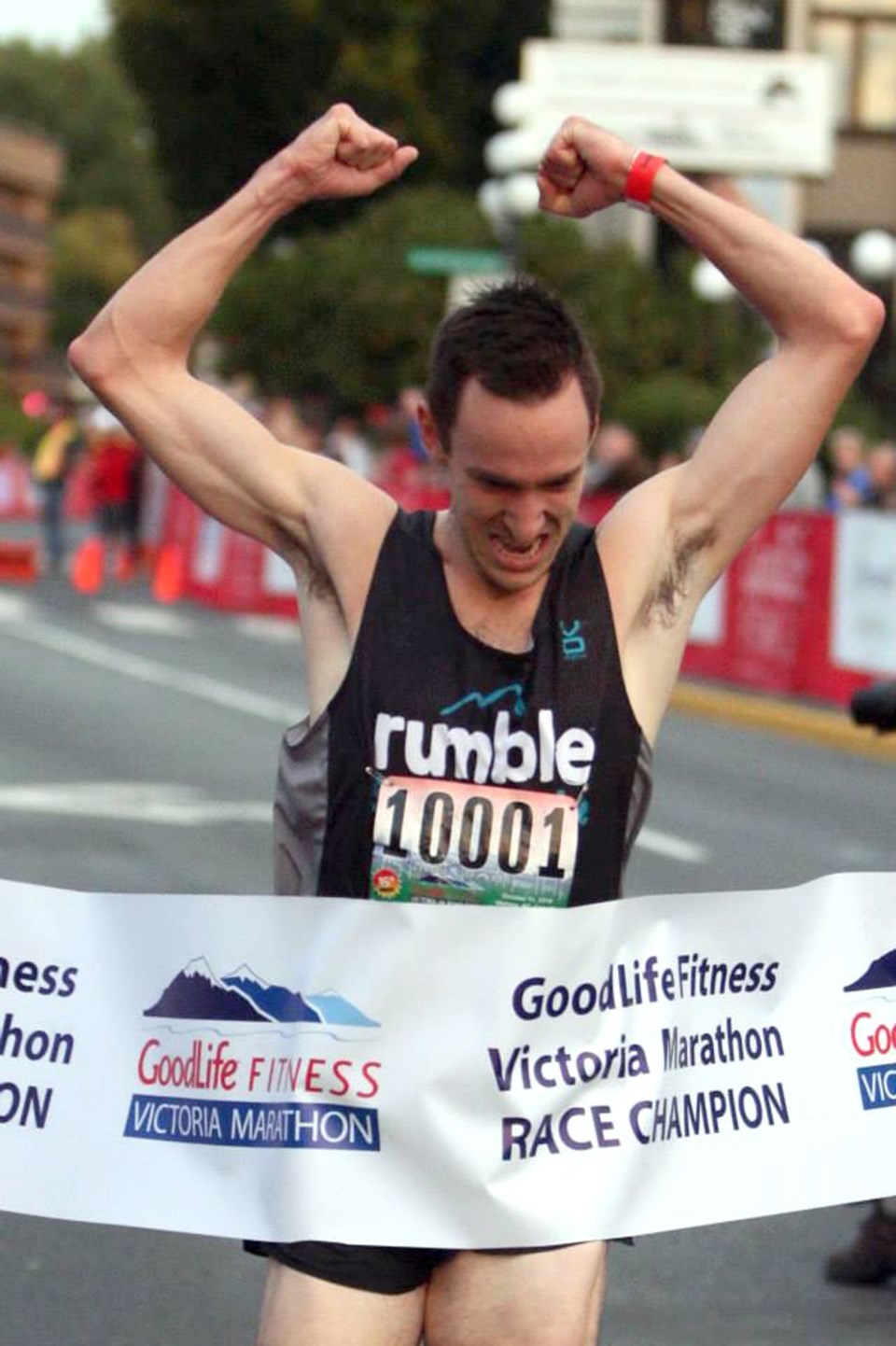Under normal circumstances, Geoff Martinson would be going full speed ahead, trying to qualify for the 2016 Summer Olympic Games.
Instead, the 30-year-old distance runner is on the limp. He's been dealing with a right knee injury since early January, one that's keeping him from pursuing a spot on Team Canada for the Games, Aug. 5-21 in Rio de Janeiro, Brazil.
Bottom line? His Olympic dream is over.
"At this point, I'm really just trying to get back to being able to run normally at all," said Martinson, who was born and raised in Prince George and has been living in Vancouver for the past two years.
"I've kind of come to peace with it all now. But at the time, I knew exactly how fit I was (before the injury) so I was very aware of how much I was losing with every week that went by. I've had my share of injuries throughout my career, but something like a stress fracture, it's just about waiting it out. It will heal. But with this one, I was seeing a sports doctor weekly, I was seeing (a physiotherapist) every few days, getting massaged. Nothing I threw at it would help."
Martinson missed representing Canada in the 1,500-metre distance at the 2012 Olympics in London. For these Games, he was targeting the 5,000m race and needed to make the Canadian Olympic standard of 13 minutes 25 seconds. That, along with a top-two finish at July's Canadian championships in Edmonton, would have guaranteed him a trip to Rio.
Martinson's personal-best clocking in the 5,000 is 13:43 - admittedly off the Olympic pace, but he liked his chances of trimming his time.
"It was always going to be sort of a long shot (to qualify) but I was definitely confident I had a good chance of hitting it," he said. "Just based on the way training was going, and early-season races and past results, I definitely thought there was a good chance of it."
Martinson's injury isn't linked to one specific incident. He said it "came on out of nowhere" and first presented itself with a sharp pain several hours after a morning workout. Initially, the discomfort was on the side of his kneecap and his doctor tried to treat it with cortisone injections. Now, Martinson said the spot that's giving him trouble is right under the kneecap and is difficult to reach with any kind of treatment.
He had an MRI exam a few weeks ago and said it showed "a mixed bag" of results.
"The main finding was a thickening of one of the minor ligaments in the knee joint," said Martinson, one of the most successful athletes in the history of the Prince George Track and Field Club. "Although the ligament itself isn't especially important, its location within the joint causes it to rub against the kneecap with movement and become irritated. I don't know if I can say it's good or disappointing that there wasn't a more conclusive finding, such as a tear, but it gives me something to focus on with treatment going ahead."
Martinson, who considers his 1,500m semifinal appearance at the 2011 world championships as his track and field highlight, is now shifting his focus away from competitive running and toward his career objectives. He graduated from the University of Victoria in 2009 with a biochemistry degree and is currently enrolled in the University of British Columbia's pharmacy program.
"It's a really good program and it's going well," he said. "I'm pretty involved with the undergrad society and there are various organizations for pharmacy, (including) the Society for Hospital Pharmacy. I'm involved with that as one of the student ambassadors so, outside of running, there have still been some really good opportunities to try and do some neat things."
After Martinson graduates from the UBC pharmacy program, he plans to apply for hospital residency.
"That's the path to do hospital pharmacy," he said. "So if I get into residency I'll do more clinical work in a hospital setting."



